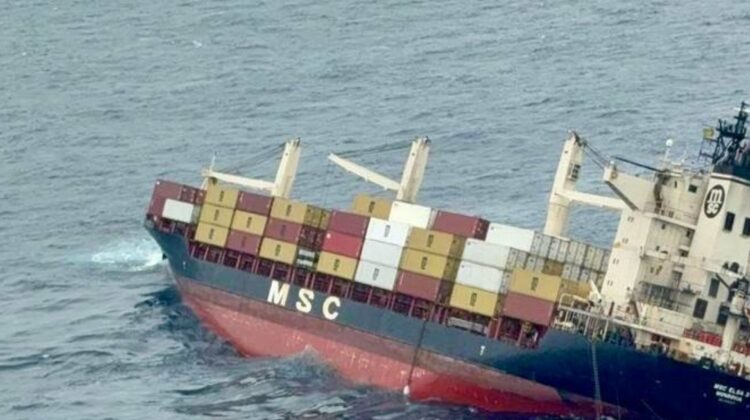
Insurers may have to shell out money for cargo involved in 2 ship mishaps
MUMBAI : The two recent ship accidents off the Kerala coast in the last weeks are expected to impact cargo insurance providers. While Indian cargo insurers had some exposure, the vessels involved were container ships carrying goods for multiple owners, which is likely to limit the impact on soft cargo premium rates. However, the vessel owners are expected to face higher costs, with increases anticipated in both hull insurance and protection & indemnity (P&I) premiums.
Both vessels were smaller sized feeder vessels bringing import cargo containers to India, insurance officials said. Indian insurance market may have potential exposure under the marine cargo segment, GIC Re Chairman and MD Ramaswamy Narayanan said.
“On both these vessels the Indian cargo Insurers had exposure but since these were container vessels carrying cargo for multiple owners the likely impact on soft cargo premium rates will be minimal. However, for the vessel owners their hull insurance and P&I premiums will go up,” said Gaurav Agarwal, Vice President, Marine Speciality, Prudent Insurance Brokers. A clear picture of the value of cargo in both the ships are not known.
Indian insurers reported a gross premium underwritten of Rs 5,535 crore in FY2025 in the marine insurance segment. Of this, Rs 3,940 crore was for marine cargo insurance.
“The first vessel MV Elsa 3 sank due to flooding in her holds and the latest one MV Wan Hai is still on fire with 18 crew members rescued and 4 missing, here the possible cause is dangerous cargo which caught fire which eventually spread due to high winds e.g. lithium batteries for EV’s or hazardous chemicals,” Agarwal said.
However, Indian insurers are unlikely to have any exposure in hull insurance — physical structure of the ships and machinery — of the two ships.
There are three areas of insurance applicable to a cargo vessel — cargo insurance for insuring cargo, hull & machinery for insuring the vessel hull and equipment and protection & indemnity (P&I) which covers all possible liabilities which can happen on account of operating a vessel like pollution caused by oil spill. “We are expecting no major impact on cargo premiums and on the shipping industry,” Agarwal said.
According to GIC Re Chairman, as the vessel in question is foreign flagged, its hull and P&I insurance are not underwritten by Indian insurers. “However, Indian insurance market may have potential exposure under the marine cargo segment. GIC Re, as a reinsurer, does not directly influence primary insurance rates, particularly in cargo lines that are not predominantly reinsurance driven. The impact on direct insurance pricing will be determined by the respective primary insurers,” Narayanan said.
Hari Radhakrishnan, an expert with Insurance Brokers Association of India (IBAI) said the two events are disparate. “One is a capsizing and the other is fire on board. Fires on container ships are not uncommon. The capsized ship reportedly sank due to ballast problem coupled with its structural age. To put the events in perspective, there are, at an average around 2700 shipping casualties and incidents each year. So, a couple of incidents near the Kerala coast does not indicate any pattern of higher casualty incidence or higher risk for ships passing through the shipping corridor, which has the potential of impacting marine premiums,” he said.
MV Wan Hai 503, which caught fire between Beypore and Azhikkal ports, off Kerala coast on Monday, was carrying was sailing from Colombo to Mumbai.
MSC ELSA 3, a Liberian container ship, sank off the Kochi coast on May 25 due to flooding, triggering a major environmental threat. The vessel sank with 640 containers, including 13 with dangerous cargo and 12 with calcium carbide. It was also carrying 84.44 MT of diesel and 367.1 MT of furnace oil.
Marine insurance provides coverage for goods, ships, and other transport means against risks like damage, theft, or loss during transit. The policyholder pays a premium based on the value of the shipment and the associated risks. In the case of a covered incident, the insured files a claim, and the insurer compensates for the loss or damage as per the policy terms. Marine insurance can be customized to include coverage for specific routes, cargo types, or additional risks like piracy. This ensures businesses safeguard their financial interests during domestic or international trade.
Source : Indian Express

